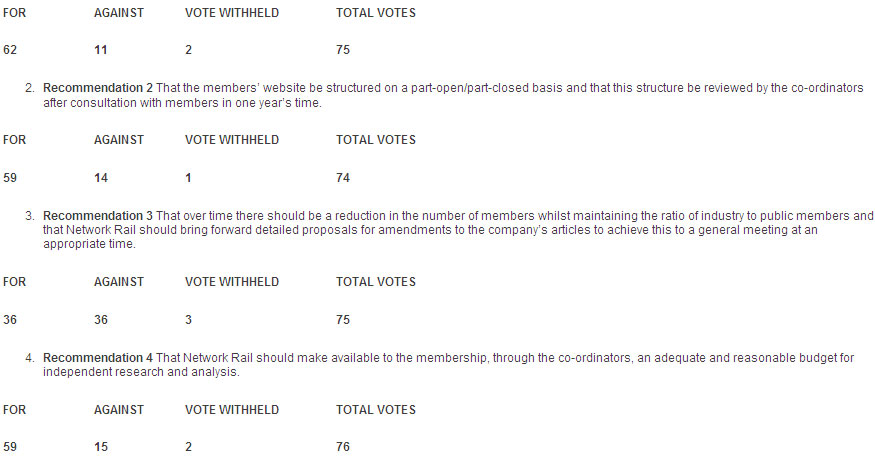Greater transparency & accountability Nwtwork Rail evolves corporate governance
Great Britain’s rail infrastructure operator, Network Rail, today announces changes in the way it is run, enhancing transparency and accountability. This follows a 16-month-long review of governance conducted by its members. Network Rail’s members act as proxy shareholders, holding the board to account.
The members’ review group has made 12 recommendations. Changes resulting from these include:
* Removing executive directors from the board’s committees. Also a new policy and performance committee will be established and number of board meetings will be held outside London;
* Giving the members’ selection panel greater independence and more accountability to members, and;
* Strengthening the non-executive element of Network Rail’s board – a search has begun to recruit high-calibre individuals with experience of business-to-business customer service and project management skills;
* A quarterly chairman’s governance letter will be sent to members outlining performance over the previous quarter and a guide to the immediate future;
* New style member-Network Rail meetings – a series of four workshop-style meetings each year will be held allowing full interrogation of information
* Greater access to the executive team by members – after the full- and half-year results the chief executive will conduct a series of meetings with 10-15 members to give them the chance to probe key issues
Four of the recommendations were voted on by members and today Network Rail can reveal the results of this vote:
1. Recommendation 1 That two co-ordinators – a head and a deputy – are elected on and that those elected should proceed to work with Network Rail in the spirit of the recent workshops held by members with the chairman.
ADVERTISEMENT

In a letter to members, Network Rail chairman, Rick Haythornthwaite said:
“Turning to recommendation 3, this voting outcome illustrates the strength and breadth of views amongst members. This range of opinions should not be regarded, however, as disappointing. I have stated previously that there is clearly argument of equal force for reducing the number of members and for leaving the status quo. The voting reflects and represents this.
“In order that we can continue to move forward with certainty with regards the governance enhancements already planned, I propose that we respect the diversity of views on recommendation 3 by leaving this proposal in abeyance for the time being.”
Mr Haythornthwaite added: “I have confidence that with the good will of all – me, the Board and Members – we can make significant strides in gaining the confidence of stakeholders in the governance of Network Rail.”
Network Rail is also consulting with its members on ten principles of corporate governance. The chairman concluded: “Network Rail cannot just be focused on regulated outputs. We must be more responsive to our customers and passengers. To support this – drawing on private sector best practice – we have devised governance principals against which members will hold the board to account.”

